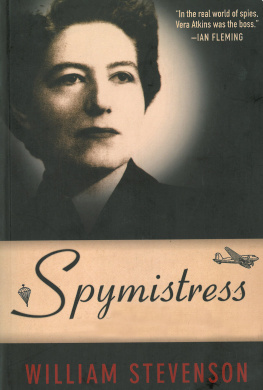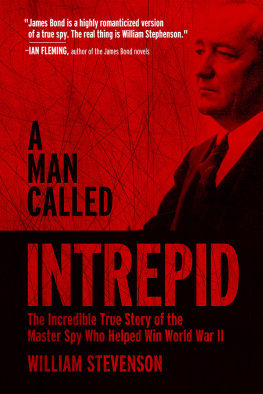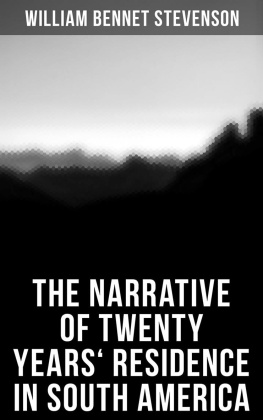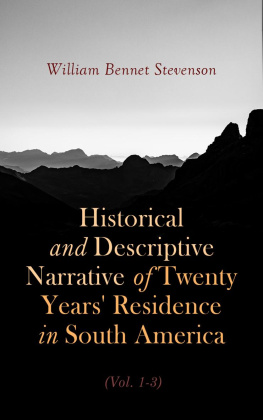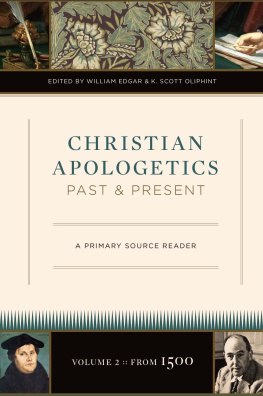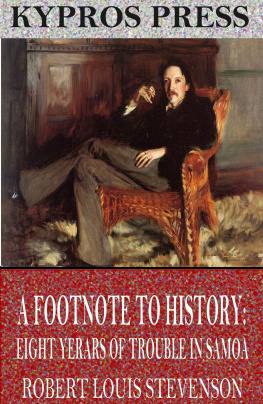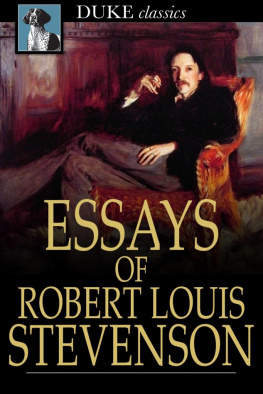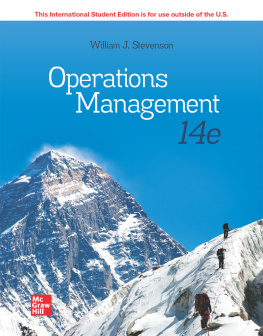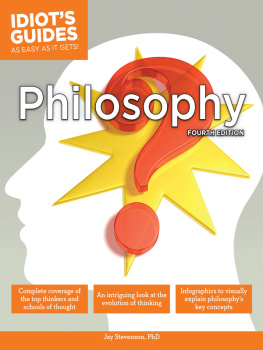William Stevenson - Past to Present
Here you can read online William Stevenson - Past to Present full text of the book (entire story) in english for free. Download pdf and epub, get meaning, cover and reviews about this ebook. genre: Art. Description of the work, (preface) as well as reviews are available. Best literature library LitArk.com created for fans of good reading and offers a wide selection of genres:
Romance novel
Science fiction
Adventure
Detective
Science
History
Home and family
Prose
Art
Politics
Computer
Non-fiction
Religion
Business
Children
Humor
Choose a favorite category and find really read worthwhile books. Enjoy immersion in the world of imagination, feel the emotions of the characters or learn something new for yourself, make an fascinating discovery.

- Book:Past to Present
- Author:
- Genre:
- Rating:4 / 5
- Favourites:Add to favourites
- Your mark:
- 80
- 1
- 2
- 3
- 4
- 5
Past to Present: summary, description and annotation
We offer to read an annotation, description, summary or preface (depends on what the author of the book "Past to Present" wrote himself). If you haven't found the necessary information about the book — write in the comments, we will try to find it.
Past to Present — read online for free the complete book (whole text) full work
Below is the text of the book, divided by pages. System saving the place of the last page read, allows you to conveniently read the book "Past to Present" online for free, without having to search again every time where you left off. Put a bookmark, and you can go to the page where you finished reading at any time.
Font size:
Interval:
Bookmark:
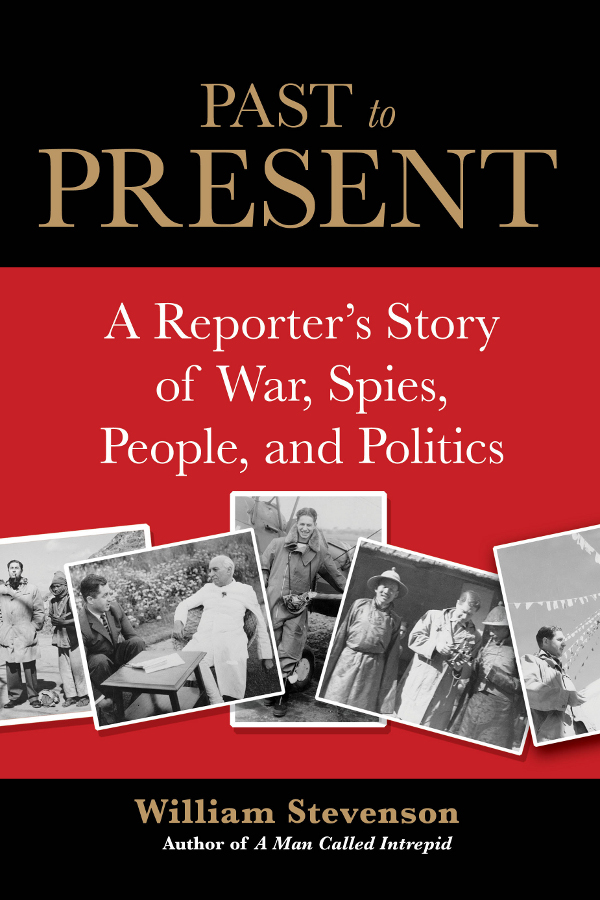
Copyright 2012 by William Stevenson
ALL RIGHTS RESERVED. No part of this book may be reproduced or transmitted in any form by any means, electronic or mechanical, including photocopying and recording, or by any information storage and retrieval system, except as may be expressly permitted in writing from the publisher. Requests for permission should be addressed to Globe Pequot Press, Attn: Rights and Permissions Department, PO Box 480, Guilford, CT 06437.
Lyons Press is an imprint of Globe Pequot Press.
All photos courtesy of the author.
Layout artist: Sue Murray
Project editors: Kristen Mellitt and Meredith Dias
Library of Congress Cataloging-in-Publication Data
Stevenson, William, 1925
Past to present : a reporters story of war, spies, people, and politics / William Stevenson.
p. cm.
Includes index.
ISBN 978-0-7627-8736-4
1. Stevenson, William, 1925- 2. Authors, Canadian20th centuryBiography. 3. JournalistsCanadaBiography. 4. Air pilotsGreat BritainBiography. 5. Great Britain. Royal NavyBiography. 6. World War, 1939-1945Personal narratives, British.
I. Title.
PR9199.3.S7876Z46 2012
813.54dc23
[B]
2012018726
To Monika and Alexandra with all my love.
A TIRADE AGAINST TYRANNY WAS SPOKEN BY VICTOR HUGO. HE SAID that back in the mid-1700s, the suppression of autocratic regimes and the limitation of armaments were debated and dismissed Is this a reason for abandoning hope that at long last men will learn wisdom? The question troubled Helene Berr, a young Parisienne. In the first two years of Nazi occupation, she pursued a love of life, music, and literature. Then she was made to wear a yellow star. She continued to study at the Sorbonne, celebrated classical music with fellow musicians, and extracted from libraries and bookshops the dog-eared remains of classical English literature. Germans indulged such behavior among the privileged young: It earmarked future victims. Helene kept a diary. She strolls through the Paris of old. She quotes great philosophers. Bit by bit, she also notes where she is heading as the enemy clears out one Jewish quarter after another. In 1944, she writes that she is selected to board a cattle-wagon. Here her diary ends. Helene died five days before American troops reached the death camp where she was caged. Her notes survive. And once again I hear my French mother reading aloud, at the start of the Nazi Blitz on London, the very same question posed by Victor Hugo. This girl in Paris might as well have been on Mars, so sharply did war separate us from Continental Europe. Yet she, too, wondered: Is this a reason for abandoning hope that at long last men will learn wisdom?
I grew up clinging to such a hope. Yet I served in a fighting navy. There was no contradiction here. I had grown up in the dockside area where as a boy I learned to deal with harsh realities with compassion. I belonged to a Boy Scout troop where Sunday morning Divisions was a tradition of weekly prayers, calling our Eternal Father to hear us when we cry to thee / For those in peril on the sea. Our warships fought the crucial Battle of the Atlantic. If it were lost, said Winston Churchill, all would be lost. Torn between hope and reality, I learned about those dragons of Greek mythology that soared, as I soared as an aviator. The dragons looked down upon us from dizzy heights. These little monsters now come up from below with old forgotten notes for me to piece together. They remind me of a boy, young as Helene, torn between hope and looming realities. To survive past and present ills, the little monsters tell me, accept Helenes early vision of a future in which hope is all that ensures survival. The little Parisienne did not survive. Yet her love of life emerges, more than half a century later, to teach us never to forget. She taught me about the real dragons haunting us and forever teaching us to be wary and never take things at face value, sometimes wearing masks of good intentions never straight forward, teaching us to be always on guard: the dragons of everyday life, offering us lessons we sometimes read wrongly. These were the dragons which fooled Helene while she lived among them, fooling her in her early days under the Nazi occupation so that she lived a normal, happy life as a student, never suspecting the dragons were plotting a time when she could be scooped up more easily later. For the purpose of all dragons is never easy to divine.
___________
Journal d Helene Berr was finally published in 2008 by Editions Tallandier, Paris.
I KNEW HIM IN MY SCHOOLDAYS AS THE BOXING PARSON OF LONDONS East End. Now he tells me, You worked out of North America. After such a snuggery, youre bound to feel down-hearted.
I just got back from Africa, I correct him. I skip in pace with his goblin-like figure. And Im not downhearted.
I heard it in your voice at lunch.
I miss clear skies and open spaces, I concede. We are walking along Pall Mall. Tall gray buildings hem us in. The pavement underfoot is unyielding, the road is foggy with fumes from trucks and double-deck buses and boxy black taxis. Delivery vans dart between gaps in the muttering traffic. Africa this is not, with its soft, warm, natural red dirt soil.
He swerves into St. Jamess Street and flourishes a gold-knobbed cane in the direction of Buckingham Palace. I preach there now. He could be a salesman pointing out the store where he works. His current title is Chaplain to Queen Elizabeth the Second, so its pretty obvious where he works, but he never lost his taste for comedy since he taught me, a skinny urchin, how to punch out the classroom bully.
Were far from the slums now, he says. Been back, have you?
No. Too full of I stumble.
Full of dragons? Little monsters of the mind. He squints at me from under his flat broad-brimmed clerical hat. I see the broken nose in a leathery face. It hasnt changed much since we spoke a different slang.
Can we stop for a tick? I ask while we advance to Piccadilly. I need to pop into my bank.
Short of the needful? Pop along, dear boy! Gather ye spondoolicks while ye may. He follows me into the Westminster Bank, fated to be gobbled up by NatWest, whose nearby local branch hums with new wealth.
Inside my cozy old bank, the queens chaplain settles on a bench. During lunch he had said I was the right chap to manage biodiversity on the farms of the Duchy of Cornwall. There, Prince Charles, more farsighted than he is given credit for at this time, challenges the bastions of conventional thinking and laments publicly that he is dismissed as a dreamer in a modern world that clearly thinks itself too sophisticated for obsolete ideas. But if we ignore Nature, everything starts to unravel. I think Charless chances of becoming king are remote and so he confronts new realities. He writes: China, once seen as dirt-poor, will run roughshod over our old imperialist snobbery. Our former colonies in India and Africa always understood biological diversity None of us will survive if the underlying well-being of the planet is destroyed.
I tell the chaplain that His Royal Highness voices my boyhood dream of taking better care of Nature, but for the likes of me, the Duchy of Cornwall is a challenge that soundswell, a bit too posh.
He must have been mulling this over because now he says, Did you know posh comes from Port-Outward, Starboard Home? In days of empire, burra memsahibs sailing out to the colonies booked cabins according to where the sun would shine, port-side on the voyage out, starboard home. He natters on, relishing a sudden tension among bank clerks corralled behind a black grid that discourages bank robbers. A couple of new clerks whisper. They clearly think he is too flamboyant to be true. He enjoys the stir and twitters away, chin resting on his walking stick. I approach my favorite teller and tell her I need to withdraw one hundred pounds.
Font size:
Interval:
Bookmark:
Similar books «Past to Present»
Look at similar books to Past to Present. We have selected literature similar in name and meaning in the hope of providing readers with more options to find new, interesting, not yet read works.
Discussion, reviews of the book Past to Present and just readers' own opinions. Leave your comments, write what you think about the work, its meaning or the main characters. Specify what exactly you liked and what you didn't like, and why you think so.

